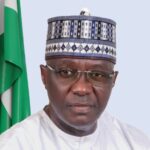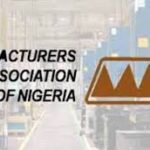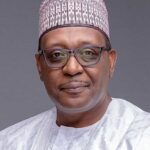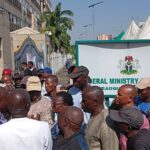Dr. Maurice Ibe, the Group Executive Chairman of Benham Group, is a financial and oil and gas industry expert. In this interview he speaks on how Nigeria can take advantage of oil bunkering and illegal refineries to maximise local oil production and supply, the bridging claims of oil marketers and the Petroleum Industry Act (PIA), among others. Excerpt:
As a consultant to oil marketers, distributors and transporters, what roles does your company play in the oil and gas sector?
Two of our subsidiaries are primarily focused on the oil and gas industry. We have clients, like independent petrol and gas marketers and the association of petroleum products. Our mandate within this organisation is to revive the structure and introduce state-of-the-art technology and help them collect their levies and all their financial activities, including but not limited to monitoring surveillance system, assisting the government in monitoring the issue of oil bunkering around the country, the issue of illegal refineries and making proper recommendations on what can be done to reduce the issue of illegal oil bunkering; not necessarily to wipe out the illegal refinery.
Respect court injunction on BEDC, CDHR tells NERC, BPE
Lottery Fund’s interventions excites FG
I have spoken at several places that instead of burning and wiping out illegal refineries, you can incorporate them into our existing laws, legitimize them, make them fully functional legal entities, and buy them the necessary tools and technologies for production. If our local artisans are producing and you provide them with the resources—the money, the tools, the technology—they can refine clean diesel. Instead of diesel being sold at N800 per litre, believe me, if we are refining locally, it won’t exceed N400 per litre.
But we engage in a panic, burning and blowing up illegal refineries in the country. That is why we are where we are today. The illegal refineries in Nigeria, I am not speaking for them; I am not holding brief for them, but this is being practical. They were supplying the substantial amount of diesel being used around the country. So, if they have the capacity to refine and produce this local product “illegally”, the federal government could have given them the tools, the wherewithal, in fact even training. Give them the technology and funding to clean up their acts. Make them a legitimate entity and train them in producing clean diesel so you can also collect taxes.
But the position of many on oil bunkering is that it is criminal. Will this your argument not tantamount to legitimising criminality in the name of business decision?
No. What I am saying is basically straightforward. These individuals get their products whether bunkered or not bunkered. What I am saying is that those who are refining diesel, you can have NNPC provide them with crude products instead of bunkering.
Instead of breaking pipes, provide them with a little quota of this product but before you do that make them clean up their acts. Help them with training, help them with technology, and give them funding. This way they can set up genuine refining capacity and NNPC would basically allocate them some products legally to help and meet up with some of the local consumption capacity; not to encourage them on illegal activities like oil bunkering. That’s what I am advocating.
What is your take on the downstream petroleum sector since the coming of the PIA 2021?
It is a work in progress. The document, for me, is not wholly acceptable, but it is what is right now. As we go along, we hope to articulate certain things that we want to be changed in the PIA. There must be a continuous review of the requirements of our local players in the oil and gas industry. We struggled so much for it.
Now, at least we have the document. Let’s start implementing it and as time goes on we will continue to think, but at least we have provided the local players with a platform to be major stakeholders in the God-given resources we have in Nigeria.
How can we resolve the crisis between Marketers and the Nigerian Midstream and Downstream Petroleum Regulatory Authority (NMDPRA) non-payment of bridging claims?
I met Mr Farooq Ahmad (the Chief Executive of NMDPRA) a couple of weeks ago and we talked about it. We made the same claim. My take on it is that the midstream and downstream regulatory agency has most of this information. This system is digitalized. It is captured within their system. So you don’t need to submit any other thing because the midstream and downstream already have this thing in their database.
But what we are saying is very simple; that is why don’t you print the statement of the members’ claims that you have within your system? As a consultant, we will bring what they have and if there are differences, we can reconcile them and determine what is owed and what is not. What are illegitimate claims; we can prove it and if we don’t we will not get it. So at least let’s have a starting point so you can begin to determine who is owed what and how much.
Not all of these members are still in business. Some have actually died waiting for their claims to be paid. So the earlier they (NMDPRA) come to the table and stop making excuses, the better for them and the better for our country. Because it might get to a point where you get a total shutdown of the system and that will not augur well for anybody.
Why is there so much bureaucracy around the reconcilation and payment of the claims?
It is in our DNA, unfortunately. That’s the Nigeria of today. I happen to be involved in the Paris Club refund of the 36 state governments. It took me eight years to bring the government to the table. So, it seems to be a part and parcel of our DNA. We deny reality. We continue to deny and refuse to pay for whatever reason but these bridging claims have to be paid.
These are legitimate claims of members. These are not loans that members are taking from the federal government. They are money that has already been deducted from them. They submit their claims, and you pay them because you’ve taken their money. Why is this so difficult for an agency like the midstream, downstream agency with all the technology at their disposal. This system has been captured electronically and saved in their system.
So it is not like they don’t have the records. You need to understand what we are dealing with here. It is not that they don’t have records. They have all the records.
Foot-dragging totally damages the credibility of the system. If you are a private investor and looking at a country that does not meet its obligations, even when it is clearly stated, what kind of investor will come to a country like that? What this has done is it has spoilt the credibility of the system within the international community.
But there are allegations against the marketers that most of the products they are asking the government to pay for were diverted and taken to neighbouring countries…?
I agree that has been an issue. A part of my responsibility is to deal with that. We are establishing a tracking system. We are trying to clean up the distribution network and make sure the owners of the trucks have the capacity to monitor where their trucks are at every point in time on their handsets.
The members who have 500 trucks have to be able to know that the trucks are in the container by looking at their phones.
So we are digitalizing the operation. We are establishing a tracking system for these trucks. We are getting involved with the security agencies to come in to integrate the system with them. Right now, most of the owners of the trucks do not know where their trucks are at any point. So, you may have the driver who loaded the product, deliver the product, and then pick up some bunkering products within the space of time that he needed to go back to the depot and take them out of the country—maybe to Niger Republic, or to Benin Republic. Meanwhile, the owner of the truck doesn’t know.
So what we are trying to do is to deploy a technology that provides the owners of the trucks the capacity to know where their trucks are at any time. Just by the touch of the button, they can know which of their trucks is to deliver products in Abuja; whether it is still in Suleja; which is conveying to Kaduna or heading towards Katsina.
Until these things are done, you can’t really hold the marketers responsible because they can own the trucks, but in terms of control, they have no ultimate control of what most of their drivers do.
The government recently increased the bridging claim by N10 for transporters, given the diesel crisis; is the N35 per kilometre bridging claim adequate?
Not at all, but it’s the beginning. It is the starting point. What we are really praying and hoping for is that the government should address the continuous increase in the price of diesel in the country. What would be adequate is to hold the skyrocketing price of diesel and, if possible, bring it down. This way, members can have some profit from the product they sell and distribute. Even the bridging claim we are talking about is not even getting to where they’re supposed to enjoy it.
The last time I was talking to the ES, he told me there had been about N70 to N75 billion between January and a couple of months ago. When you are talking about N580 billion what is N70 billion? So there’s a huge difference here that needs to be sorted out so that our members can have their money back.

 Join Daily Trust WhatsApp Community For Quick Access To News and Happenings Around You.
Join Daily Trust WhatsApp Community For Quick Access To News and Happenings Around You.


